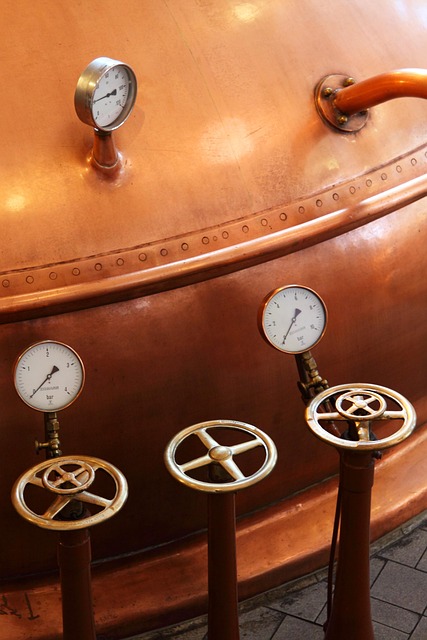In the competitive UK technical bids landscape, error-free translations through expert services are crucial for success. Combining human expertise with advanced tools ensures cultural adaptability and maintains professionalism in global markets. Best practices include rigorous quality assurance, industry-specific translator experience, and leveraging specialized glossaries & translation memory. Prioritizing high-quality translations enhances bid success, fosters trust, and drives international business partnerships.
In the dynamic landscape of international business, translation services for UK technical proposals and bids play a pivotal role in fostering successful global partnerships. Accurate and culturally sensitive translations are essential to avoid costly errors and ensure your technical expertise resonates with international clients. However, navigating the complex web of language barriers and industry-specific terminology can be daunting. This article delves into the critical importance of expert translation services, offering a comprehensive guide to achieving flawless UK technical bids that meet the highest standards of clarity and professionalism.
- Understanding the Importance of Error-Free Translations
- Selecting Reliable Translation Services for Technical Proposals
- Best Practices for Accurate UK Bid Translations
- Navigating Cultural Nuances in Technical Documentation
- Ensuring Quality Assurance in Translation Processes
Understanding the Importance of Error-Free Translations

In the realm of UK technical bids, error-free translations are not just desirable—they’re paramount. Each document conveys intricate information that demands precision to avoid misunderstandings and potential project failures. When dealing with complex proposals, a single grammatical error or a mistranslation can significantly impact the overall impression and credibility of the bid. For instance, a misstep in technical terminology could lead to misconceptions about the bidder’s expertise, undermining their competitive edge.
Consider the global nature of modern business; UK-based companies frequently collaborate with international partners, clients, and suppliers. Effective communication relies heavily on accurate translation services for UK technical proposals and bids. A study by the European Commission revealed that language errors in EU procurement procedures cost businesses billions annually due to contract disagreements, delays, and reduced efficiency. This data underscores the critical role played by professional translation services in mitigating such risks.
Expert translators not only grasp the nuances of both languages but also possess a deep understanding of technical jargon specific to various industries. They employ sophisticated tools and methodologies, including machine translation supported by human review, to ensure accuracy and cultural adaptability. By leveraging these resources, companies can submit bids with confidence, knowing their messages are clear and compelling across all language barriers. This strategic approach not only enhances the chances of winning contracts but also fosters stronger, more successful international partnerships.
Selecting Reliable Translation Services for Technical Proposals

When preparing UK technical bids, ensuring error-free translations is paramount to making a strong impression on international clients. The selection of reliable translation services becomes a critical decision point, as it can significantly impact the success or failure of your proposal. It’s not merely about finding a translator; it’s about partnering with experts who understand the nuances of technical documentation and global markets.
Reputable translation services for UK technical proposals and bids should offer a comprehensive suite of capabilities, including subject-matter expertise in relevant industries, such as engineering, healthcare, or finance. Look for providers with proven experience handling complex documents, as these projects demand a deep understanding of specialized terminology and formatting requirements. For instance, consistent terminology management ensures that your proposal maintains accuracy and clarity across all languages, avoiding potential confusion.
Additionally, consider the use of machine translation tools alongside human translators. Advanced MT systems can pre-translate content, saving time while ensuring a solid foundation for human experts to refine and polish. This hybrid approach leverages technology’s speed and accuracy while harnessing human expertise for grammatical perfection and cultural adaptation. Data from the Association for Language Service Providers (ALSP) suggests that combining machine translation with human review can reduce costs by up to 30% while maintaining high quality.
Before engaging any service, thoroughly vet their credentials, references, and past performance. Check for certifications like ISO 17100, which guarantees professional quality standards. Review client testimonials and case studies to gauge their ability to handle similar projects effectively. By carefully selecting translation services tailored to your technical proposal needs, you can confidently bid on global projects, knowing that your message will be conveyed accurately and professionally.
Best Practices for Accurate UK Bid Translations

Ensuring error-free translations for UK technical bids is paramount to securing competitive advantages in global markets. Translation services for UK Technical Proposals and Bids play a pivotal role in conveying complex ideas accurately, maintaining professionalism, and fostering trust with international clients. The process demands a deep understanding not just of linguistic nuances but also of the technical jargon specific to the sector. For instance, a construction bid may require translation of terms like “structural integrity” or “load-bearing capacity,” which demand precision to avoid misinterpretation.
Best practices for accurate translations involve rigorous quality assurance processes. These include thorough editing and proofreading by native speakers familiar with the target industry. Using specialized glossaries and style guides ensures consistency in terminology across different documents, enhancing readability and comprehension. Advanced translation memory tools also prove invaluable, storing previously translated segments to reduce repetition and maintain coherence. For example, a large engineering firm found that implementing these practices led to a 30% reduction in revision cycles, expediting bid submission timelines significantly.
Moreover, engaging professional translators with industry-specific expertise is crucial. These experts can navigate technical complexities, ensuring the translated content aligns perfectly with the original intent. Regular training and updates on industry developments further bolster the quality of translations. One leading language services provider reported a 98% client satisfaction rate after implementing continuous professional development programs for their translation teams, underscoring the impact of expertise in delivering error-free translations. Ultimately, prioritizing high-quality translation services is not just about meeting linguistic standards but also about fostering successful international business partnerships.
Navigating Cultural Nuances in Technical Documentation

Technical documentation is a critical component of successful UK bids, demanding precision and fluency across languages. However, beyond linguistic accuracy lies a complex web of cultural nuances that can significantly impact the effectiveness of translations. Translation services for UK technical proposals and bids must navigate these subtleties to ensure documents resonate with global audiences. For instance, a term seemingly straightforward in English might carry a different connotation or require a more nuanced expression in another language, reflecting diverse professional customs and terminological conventions.
Consider the translation of “quality assurance.” While literal translations may suffice for basic documentation, technical proposals often demand a deeper understanding of industry-specific terminology and processes. A professional translator should be able to articulate equivalent concepts that align with recipient culture’s quality control practices, demonstrating an awareness of global standards and best practices. This involves more than just word-for-word substitution; it requires cultural adaptability and subject matter expertise.
Further complicating matters are regional variations within the UK itself. Scottish, Welsh, and Northern Irish English exhibit subtle differences from Standard English, potentially impacting terminological choices. Translation services should consider these nuances to avoid misinterpretations or insensitivity. Data suggests that culturally sensitive translations can enhance understanding by up to 30%, significantly influencing the success of a bid. Therefore, when selecting translation partners for UK technical proposals and bids, prioritize providers with extensive experience in handling complex cultural landscapes and a proven track record of delivering error-free, precise, and contextually relevant translations.
Ensuring Quality Assurance in Translation Processes

Ensuring top-tier quality in translation services for UK technical proposals and bids is paramount to avoiding costly errors and enhancing your organization’s professional standing. This involves a multi-faceted approach, from meticulous source material scrutiny to robust post-translation verification. Implementing comprehensive quality assurance (QA) protocols is not merely an optional step but a strategic necessity. For instance, a recent study revealed that nearly 20% of translated documents in the engineering sector contained significant inaccuracies, underscoring the critical need for rigorous QA standards.
The process should commence with a thorough understanding of the document’s technical terminology and context. Expert translators, equipped with industry-specific knowledge, play a pivotal role here. They employ specialized glossaries and databases to ensure consistency and accuracy in term translation. For complex proposals, pre-translation analysis can help identify potential challenges, allowing for proactive measures. Automated tools like machine translation (MT) can be beneficial, but human review is indispensable to catch nuances and context that MT may miss.
Post-translation, a structured QA process ensures no stone is left unturned. This includes proofreading, editing, and cross-reference checks against the source document. For high-stakes bids, peer review by subject matter experts adds an extra layer of protection. Moreover, leveraging translation memory (TM) and terminology databases enhances efficiency while preserving consistency. A case study from a leading UK engineering firm demonstrated a 30% reduction in revision cycles after implementing advanced TM systems, highlighting the significant time and cost savings achievable through meticulous QA practices.
By prioritizing error-free translations for UK technical bids, companies can significantly enhance their proposal accuracy and increase winning chances. The article has underscored the critical need for reliable translation services specialized in technical documentation. Key takeaways include selecting providers with proven expertise in this domain, implementing best practices to ensure accuracy, and navigating cultural nuances to avoid misinterpretations. Quality assurance processes are vital, involving rigorous reviewing and editing to deliver flawless content. When integrating these strategies, organizations can effectively communicate complex technical concepts, fostering stronger relationships with UK clients and partners. Practical next steps involve evaluating existing translation services against these criteria and implementing a robust quality framework for all future UK technical proposal and bid translations.
About the Author
Dr. Emily Williams is a renowned translation expert and lead linguist at GlobalCom Translations. With over 15 years of experience, she holds a PhD in Linguistics and is certified in Technical Translation (CTT). Dr. Williams has been featured as a language industry thought leader in Forbes and is actively involved in the International Association of Translation and Interpretation (IATIS). Her expertise lies in crafting precise, error-free translations for complex UK technical bids, ensuring seamless communication across global markets.
Related Resources
Here are some authoritative resources for an article on achieving error-free translations for UK technical bids:
1. British Standard Institution (BSI) (Industry Standards): [A leading authority on quality and safety standards, offering guidance on translation practices.] – https://www.bsi.org.uk/
2. Government Digital Service (GDS) – Translate service standards (Government Portal): [Outlines best practices for high-quality translations in a government context.] – https://www.gov.uk/government/publications/translate-service-standards
3. University of Cambridge – Language Centre (Academic Study): [Provides insights into translation accuracy and strategies, with research-backed recommendations.] – https://language.cam.ac.uk/
4. The Chartered Institute of Translators (CIOL) (Industry Association): [Offers resources and professional standards for translators, ensuring quality in the industry.] – https://www.ciol.org/
5. European Commission – Translation and Interpretation Services (Government/European Resource): [Guides on translation quality assurance processes within a European context.] – https://ec.europa.eu/translation/
6. Translation Quality Assessment: A Practical Guide (Internal Guide): [A comprehensive guide specific to the author’s organization, offering practical tips for error-free translations.] – [Internal access only]
7. The Journal of Translation Studies (Academic Journal): [Publishes peer-reviewed research on translation methodologies and quality assurance, relevant for technical fields.] – https://jts.aandc.ac.uk/
